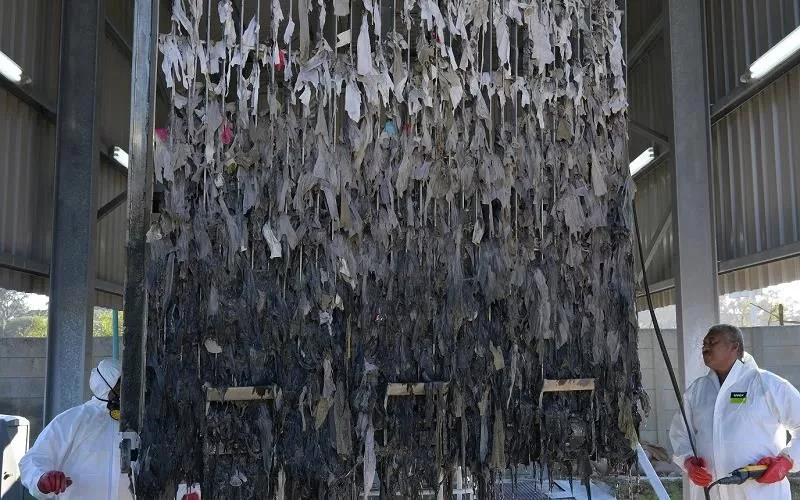South African restaurants are facing a credibility crisis due to a flood of fraudulent Google reviews, including positive reviews that include incorrect information. Esteemed culinary institutions, such as PIER, Ōku, Belly of the Beast, Reverie Social Table, La Colombe, and Homespun, are struggling with the impact on their reputation. The rise of AI-generated fake reviews poses a considerable challenge for businesses, and Hellopeter is one platform that has adopted strict measures to combat fraudulent activities. Despite these challenges, the resilience and adaptability of the restaurant industry give hope for the future.
The Challenge of Unauthentic Google Reviews
A flood of fraudulent Google reviews is causing a credibility crisis for South African restaurants. Esteemed culinary institutions find themselves caught in a vortex of doubt due to fake reviews. Even positive reviews including incorrect information can be detrimental. The rise of AI-generated fake reviews poses a considerable challenge for businesses.
The Challenge of Unauthentic Google Reviews
The digital age has gifted us with the ease of online reviews, yet it has also bred an unexpected problem that the finest South African restaurants find themselves wrestling with. A flood of fraudulent Google reviews is causing a credibility crisis for these customer review platforms.
Esteemed culinary institutions such as PIER at the V&A Waterfront, Ōku, Belly of the Beast, Reverie Social Table, La Colombe, and Homespun find themselves caught in this vortex of doubt. Known for their flawless culinary creations, these establishments now face a predicament that extends far beyond their culinary practices.
Ryan Shell, the representative for the acclaimed restaurant Ōku, voiced his frustration clearly. He explained that the wave of fake Google reviews not only irritates them, but it also poses a threat to their hard-won reputation. He says it is a disruptive force that misguides potential food lovers. In his words, “The prevalence of fake reviews on Google is undermining our reputation and misleading potential customers.”
The Impact on the Dining Experience
The value of a restaurant goes beyond media praise and awards, the true worth lies in the sincere insights from patrons. This onslaught of bogus reviews has left the staff in a state of bewilderment and anxiety. Shell further elucidates, “Our main source of information about performance comes from online reviews. This is because our entire business model is centered around people, and a majority of the restaurant’s senior staff have grown within the business.”
Fraudulent reviews are not confined to negative feedback. Even positive reviews that include incorrect information, like non-existent menu items, can be detrimental. These falsified five-star reviews blur the line between genuine and counterfeit, subsequently undermining the credibility of true feedback.
The rise of AI-generated fake reviews poses a considerable challenge for businesses. These reviews not only deceive consumers, but they also torpedo the hard work and intricate artistry of these establishments. The impact of this deception is far from trivial, as these reviews can cause serious reputational harm. Shell disclosed that out of the 203 Google reviews Ōku received, an astonishing 99% were fake.
The Motives and Countermeasures
The motives behind these deceitful reviews are diverse. While some aim to boost a restaurant’s ratings to attract more customers, others are ploys by rival establishments looking to damage a competitor’s reputation.
This deception goes even further. As reported by MyBroadband, fake reviews are also used by scammers seeking to destroy the reputation of legitimate businesses. These reviews can also manipulate search engine rankings, as a greater number of reviews can raise a restaurant’s position in the search results.
In the face of this barrage of fraudulent reviews, businesses and customers are turning to online review platforms like Hellopeter for solace. This platform has adopted strict measures to combat fraudulent activities, using a blend of automated and manual checks to detect and remove potential fake reviews.
Alon Rom, the CEO of Hellopeter, highlights the platform’s dedication to promoting transparency and trust. He reassures consumers that they can depend on Hellopeter’s reviews, safe in the knowledge that there are robust systems in place to prevent the spread of bogus feedback.
Navigating the Future
In conclusion, as we continue our journey into the AI era, the problem of fake reviews is likely to persist. Nevertheless, the resilience and adaptability of the restaurant industry, coupled with platforms like Hellopeter, give us a sliver of hope in navigating this complex issue.
What is causing a credibility crisis for South African restaurants?
A flood of fraudulent Google reviews, including positive reviews with incorrect information, is causing a credibility crisis for South African restaurants. The rise of AI-generated fake reviews poses a considerable challenge for businesses.
How are esteemed culinary institutions impacted by the challenge of unauthentic Google reviews?
Esteemed culinary institutions, such as PIER, Ōku, Belly of the Beast, Reverie Social Table, La Colombe, and Homespun, find themselves caught in a vortex of doubt due to fake reviews. Known for their flawless culinary creations, these establishments now face a predicament that extends far beyond their culinary practices.
What is the impact of unauthentic Google reviews on the dining experience?
Fraudulent reviews, including positive reviews with incorrect information, leave staff in a state of bewilderment and anxiety. These falsified five-star reviews blur the line between genuine and counterfeit, subsequently undermining the credibility of true feedback. The rise of AI-generated fake reviews poses a considerable challenge for businesses, not only deceiving consumers but also torpedoing the hard work and intricate artistry of these establishments.
What are the motives behind fake reviews and what are the countermeasures?
The motives behind these deceitful reviews are diverse, with some aimed at boosting a restaurant’s ratings to attract more customers, while others are ploys by rival establishments looking to damage a competitor’s reputation. In the face of this barrage of fraudulent reviews, businesses and customers are turning to online review platforms like Hellopeter for solace. This platform has adopted strict measures to combat fraudulent activities, using a blend of automated and manual checks to detect and remove potential fake reviews.
How does Hellopeter combat fraudulent reviews?
Hellopeter uses a blend of automated and manual checks to detect and remove potential fake reviews. The platform is dedicated to promoting transparency and trust, and reassures consumers that they can depend on Hellopeter’s reviews, safe in the knowledge that there are robust systems in place to prevent the spread of bogus feedback.
What hope is there for South African restaurants in navigating the issue of fake reviews?
The resilience and adaptability of the restaurant industry, coupled with platforms like Hellopeter, give hope in navigating this complex issue. As we continue our journey into the AI era, the problem of fake reviews is likely to persist, but the industry is working to combat it.












